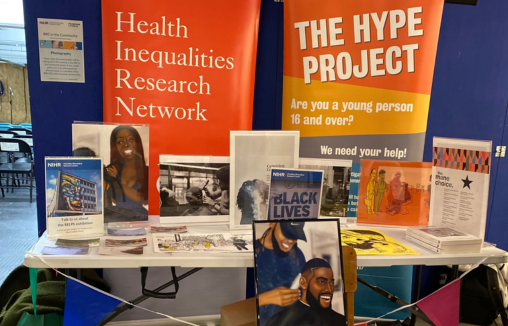Key impacts:
- Review of the strategy objectives each year and the strategy review at three years.
- Diversity and inclusion in advisory groups will be monitored to ensure that it reflects the local community,
- Building the research capacity of service users by supporting lived experience PhDs
- Evaluations of all advisory groups – both researchers and members of the advisory groups (see below for details)
We have in the past measured our PPIE impact through an independent service user led ethnographic study on the effectiveness of PPIE over the history of our BRC. This provided an overview of where we have done well and what more we need to do and provides a clear way forward (Evans and Papoulias, 2020).
Over the course of this BRC we plan to evaluate the minutes of advisory group meetings and carry out interviews of advisory group members to understand PPIE impact and whether service users feel their voice is being heard. This evaluation will be carried out by a lived experience researcher.
We will continue to investigate how service user advice changes the design and consent procedures (including readability) of studies and will publish our findings in peer reviewed journals.
We will also publish a simple plan on our website that details the steps involved in understanding impact and how strategies change following evaluation. This means that we move beyond impact to demonstrate how the results affect our future strategy as a full audit process. We also expect researchers who use our advisory groups to acknowledge that support in peer reviewed papers, to have a section on how lived experience was included in the study, and for researchers to encourage service users to be named as authors in the final scientific publication. Although this was curtailed during the pandemic, we intend to continue our face-to-face events with Dragon Café and ‘pubs’ (e.g., Pint of Science).
Examples of Impact
Previous impact: The Medication Side Effects measure (MSE; McCrone et al, 2021) has been developed and then embedded in Beth (a digital tool kit for mental health support).
Our FAST-R group makes an impact on the readability and understandability of research participant facing documents (Jilka et al., 2021).
Future impact: A systematic review of facilitators and barriers of PPI in mental health research with recommendations for future acknowledgement of lived experience within peer reviewed publications.
Programme of Activities and Research











